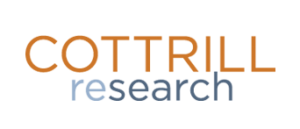The need for flexibility and agility in corporate strategic thinking, especially in the past 30 years, has remained constant. In the early nineties executives started focusing on positioning corporations to be able to adapt and respond more quickly to the rapidly changing business environment at that time. Executives were starting to embrace strategic thinking (as opposed to relying on longer term strategic planning) to become “smart, targeted, and nimble enough to prosper in an era of change” (Langan). This need for speed and agility seems obvious to us now but consider that 1991 was a banner year for advances that altered the way we worked. That year, cellular phones and notebook computers experienced market surges. Networking was becoming more prevalent (Dykeman) enabling workers to collaborate on projects regardless of their physical locations (Lewis). Now 30+ years later the importance of quickly adapting to change and strategic thinking going hand in hand remains as critical as ever. Or is that true? In this age of AI, will there be a major shift in how corporations will consider strategic thinking?
Recently, in an interesting Tedx Talk, Ghassan Paul Yacoub, Academic Director of the EDHEC Global MBA, discusses the human value of strategic thinking in this era of AI. His talk considers “since AI is increasingly doing the strategic thinking for us” our (human) value ad is that we can redefine strategic thinking. He argues for “slow thinking” where we can pause and reflect and “try to structure our thinking [deeply] into the problem…rather than arguing for speed.” He cautions slow thinking is not about going slower, being indecisive or anti-agile, but is a way to keep the “overwhelming context that we live in actually more bearable more strategic and more human.” The urge to rush to keep up or stay ahead of our competitors “is a rush to speed rather than a rush to [developing] in-depth framing.” Framing is important because it helps in structuring the problem, keeps us from rushing towards everything that’s tech, and allows for seeing what matters, He ends with a quote by Albert Einstein that says “actually machines are incredibly fast but stupid while human beings are incredibly slow but brilliant” (Yacoub).
There is much to think about (no pun intended) here. In closing, I leave you with another quote that remains timeless and true: “To keep ahead in this dynamic environment in which the rules are constantly changing requires more than a change of structure, it requires a whole new way of thinking” (Porges, Kriegel).
Sources
Dykeman, John. “1991 in Retrospect: A Year of Milestones,” Modern Office Technology. December, 1991. p. 10.
Langan, Patricia. “How to Plan for 1995.” Fortune. December 31, 1990. p.70.
Lewis, Peter. “Were Libraries Are Leading the Way.” The New York Times. May 13, 1990. p. 8f.
Porges, Kelly K., Bank of America senior v.p. Interview, September, 1989; Robert J. Kriegel and Louis Patler, If It Ain’t Broke…Break It! And Other Unconventional Wisdom for a Changing Business World. Business Plus. March 1992. p. 5.
Yacoub, Paul Ghassan. “Redefining Strategic Thinking in The Age of AI.” TEDxEDHECNice via YouTube. June 16, 2025. https://www.youtube.com/watch?v=UvuyNw-xhj0
Photo by Sage Friedman on Unsplash

